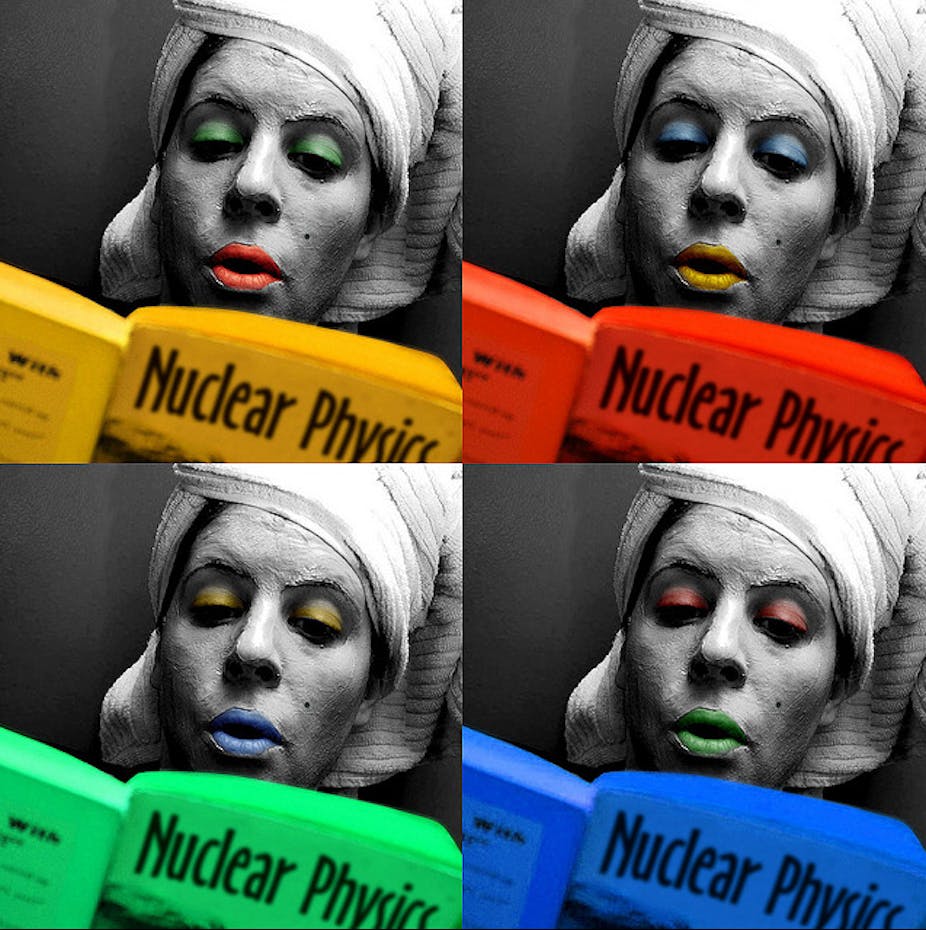THE STATE OF SCIENCE: Should scientists communicate with the general public? Dr Danny Kingsley makes a case for speaking out.
Scientific articles don’t often feature on beside tables or as bathroom reading. Not because they aren’t important – they are – but most are, frankly, indecipherable.
I teach the plain English writing component of a workshop for PhD students. Before we begin each workshop, at least one participant usually says they don’t see why they need to communicate with the general public. Some of them say they “only want to communicate to other scientists”.
Well, get real.
My stock response to this is that researchers have an obligation to share the findings of their research with people other than their immediate circle.
Senator Kim Carr, Australia’s Minister for Innovation, Industry, Science and Research, said in 2008 that researchers had a “duty” to take on a public role due to the nature of their work and the source of their funding.
Research in Australia is almost exclusively funded by the taxpayer. Think about that for a moment. Many researchers don’t feel it is necessary to communicate with the people who pay for them to be able to do their research.
And research is an expensive business. In 2007, funding for research, research support and research training was around $2.6 billion.
The taxpayer has a right to know how that money is being spent, without feeling they need to complete their own PhD to understand the language.
Get talking, or get walking
Of course, scientists do actually communicate their research all the time. The “currency” in the scientific world is the journal article and conference paper. Scientists can’t escape this. The published output of a researcher directly affects his or her career.
Such papers were not always impenetrable to all but a chosen few. It’s hard to believe now that at the turn of last century scientific articles had the same readability as the New York Times.
And yet over the decades, scientific literature has become more and more inaccessible – partly because of the increasing specialisation of science and the accompanying need for jargon words.

There are examples of journals attempting to address this issue. Science (to name just one) offers a one-line summary of articles in the contents page.
Both Science and Nature include articles that discuss research papers published in their journals. The British Medical Journal (BMJ) includes boxes in its articles titled “What is already known on this topic” and “What this study adds”.
There is a secondary problem. The inaccessibility of language used in scientific papers is coupled with the inaccessibility of the papers themselves.
If you try to click on this link to an article about communicating science and you don’t have a subscription to Nature, you will be asked to pay US$32 to read it. This is not to say Nature is evil – the journal has held debates on open access, and allows authors to post copies of their work in open access repositories such at the ANU Research repository – but this is nevertheless a neat illustration of the problem.
Half way there
There’s an argument that publishing scientific papers is only half the job, not least because on average less than one person reads any given scientific paper.
Communicating more broadly doesn’t just benefit society. There are arguments that the very act of having to explain work in terms that are comprehensible to a non-specialist improves research.
And things, it seems, are starting to change. Very recent developments include the requirement by some journals, such as RNA Biology, to prepare a wiki article, readable by an undergraduate student, to be submitted with a paper for concurrent peer review.
Do or die
My explanation to those students who are uninterested in communicating is that they shouldn’t expect to have much success in their careers.
Given the high specialisation of science, the chances that the promotion committee or grant application reviewers – or indeed any people making crucial decisions about careers or funding – will be in exactly the same speciality are extremely slim.
Decision makers are far more likely to look favourably on a description of work that is understandable than one they have to slog through.
To a highly-specialised researcher almost everyone could be classed as the “general public” – a terrifying thought to some, for sure, but a sobering one, I hope, for many others.
This is the fourth part of The State of Science. To read the other instalments, follow the links below:
Part One: Does Australia care about science?
Part Three: Science can seem like madness, but there’s always method
Part Five: Science is imperfect – you can be certain of that
Part Seven: When things don’t add up: statistics, maths and scientific fraud
Part Eight: Get real: taking science to the next generation of Einsteins
Part Nine: Critically important: the need for self-criticism in science
Part Ten: Please, sirs, can we have some more? Aussie scientists need fuel, not gruel
Part Eleven: Scientists and politicians – the same but different?
Part Twelve: Tweed or speed … a day in the life of a modern scientist
Part Thirteen: Selling science: the lure of the dark side
Part Fourteen: Way off balance: science and the mainstream media

